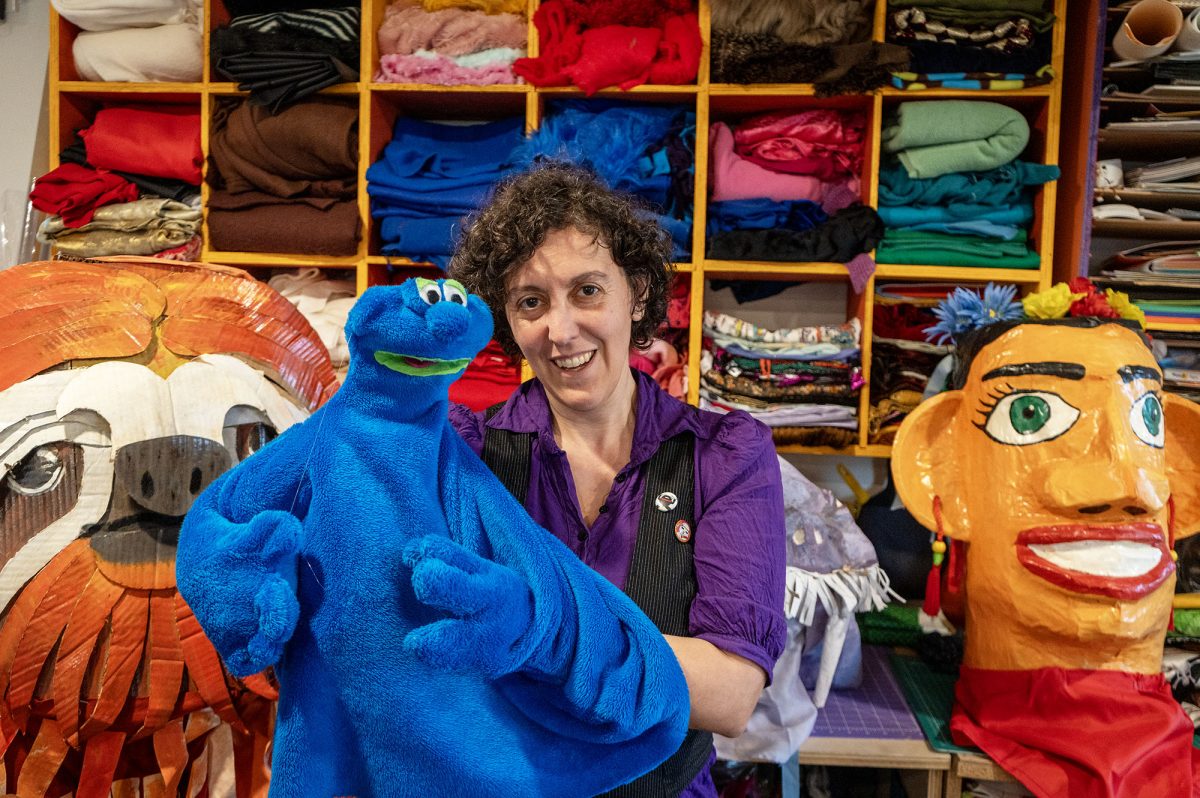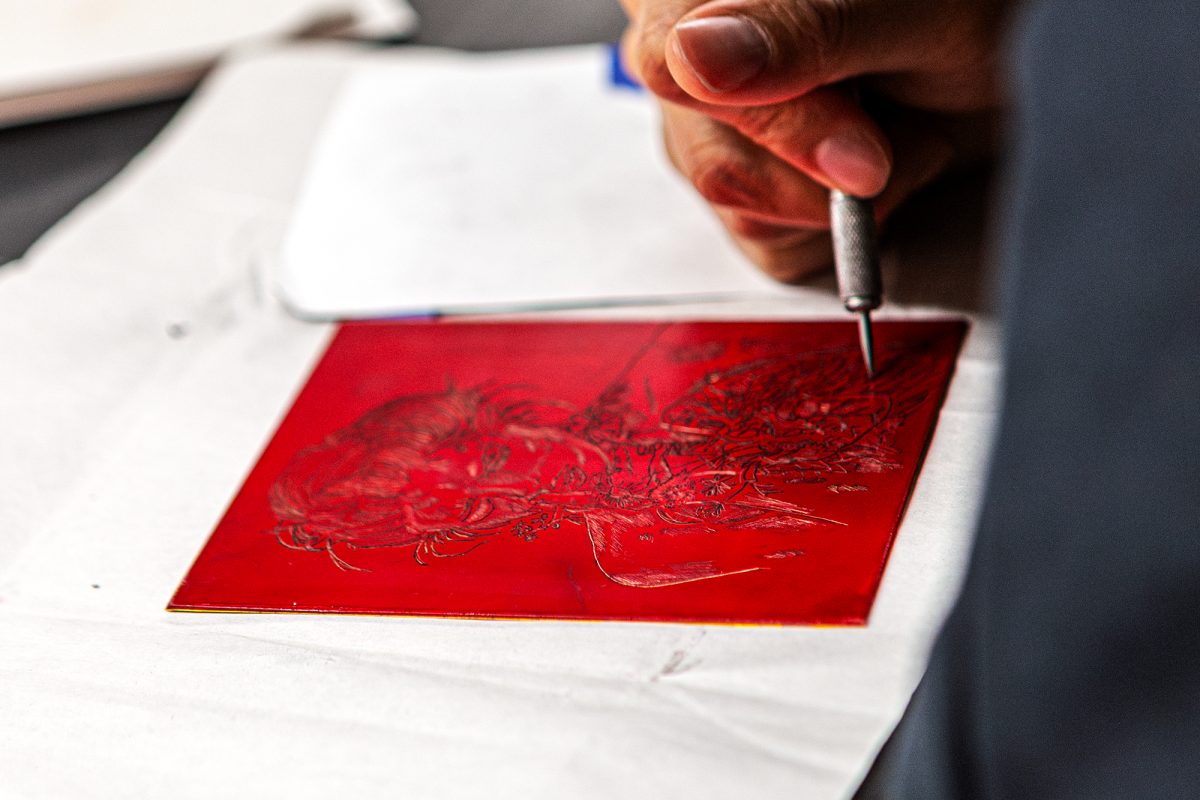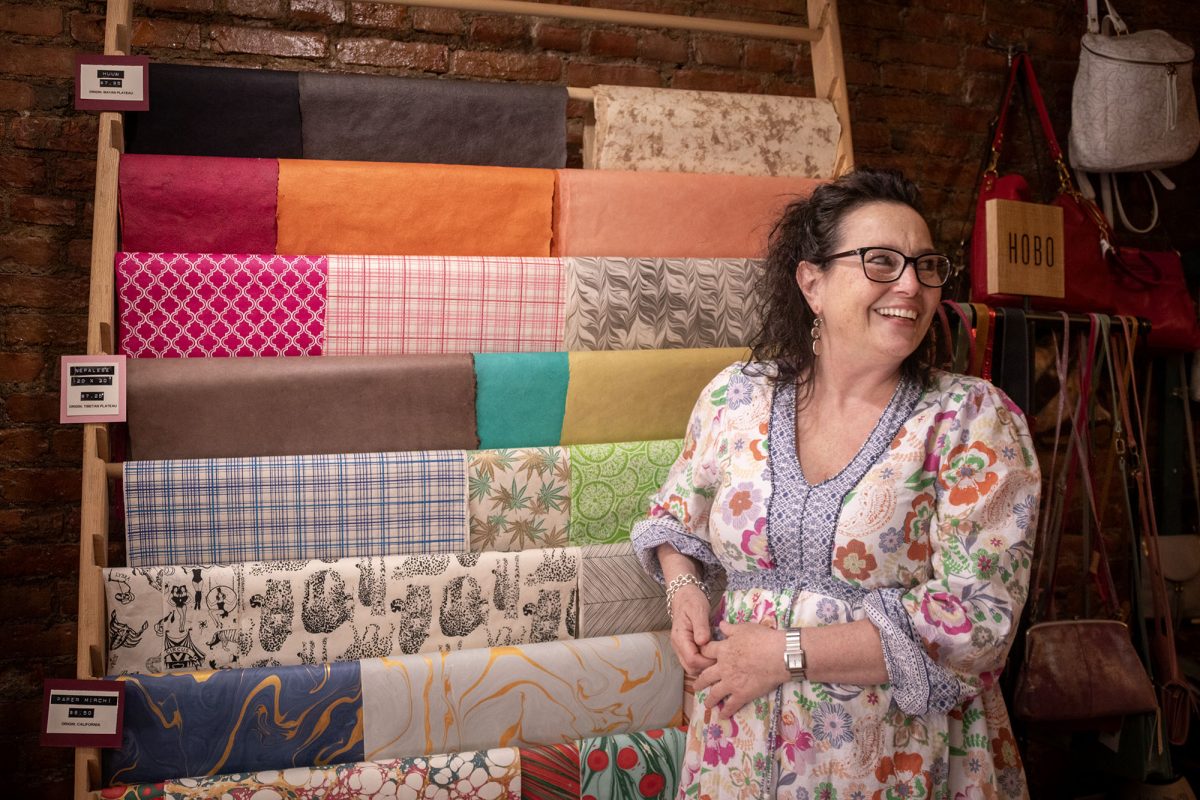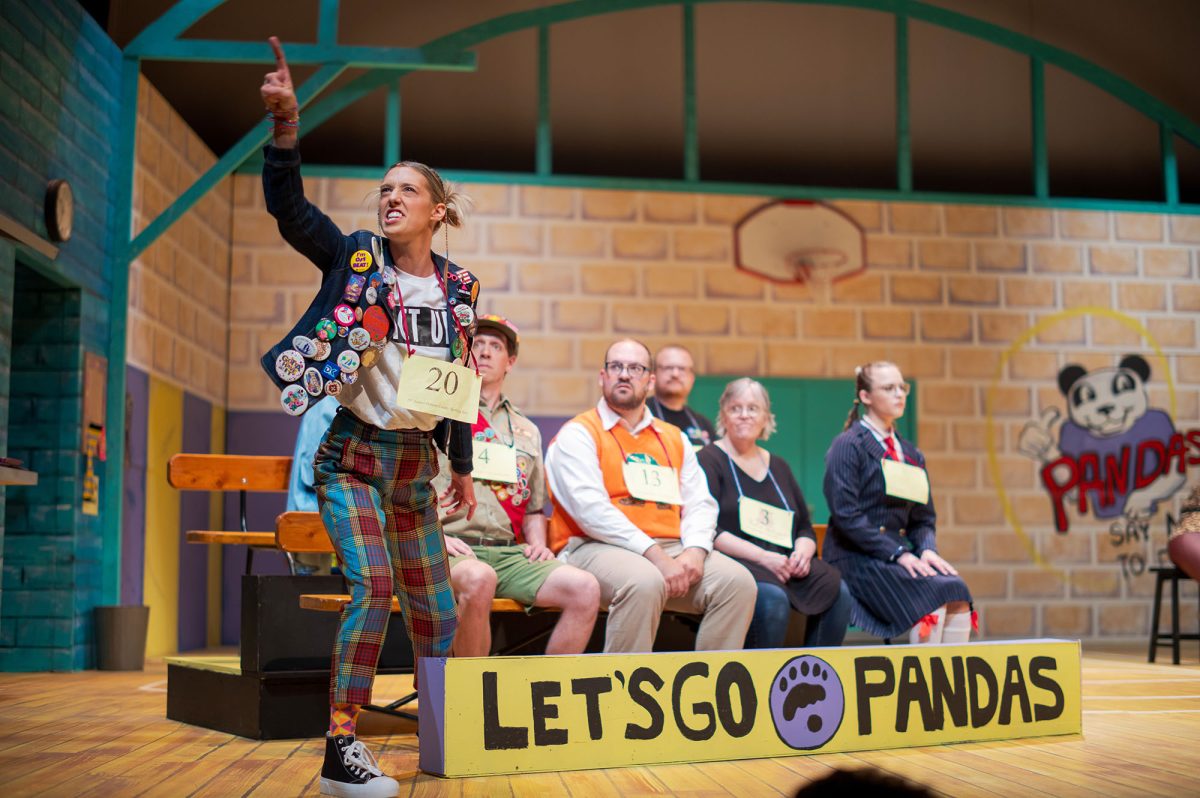Ithaca has always been known to be a haven for the performing arts, with music and theater performances constantly going on around the city. One such performing art is puppetry, a style getting more recognition by the day through local organizations.
The Lilypad Puppet Theatre is a local non-profit that performs live puppet shows across the greater Ithaca area. The company was started in Ithaca by Lily Gershon, along with her partner, Matthew Ocone, in 2018. Gershon herself has been involved with puppetry since 2013 with the founding of LilySilly Puppet Theater. She said the idea for the puppet theater came from puppet performances she used to put on during gatherings at her house.
“We eventually decided that this could be a profession,” Gershon said. “I called up the [Trumansburg Montessori] school and asked if they needed a puppet show and they said they did … and then we started doing shows for kids, for schools and libraries and festivals.”
Before starting the puppet theater, Ocone and Gershon were a music duo, performing jazz music across the Ithaca area. The two found a connection between their music and Gershon’s passion for puppet theater and began doing shows around town. Their joint projects began at the farmers market, where customers could walk by and get a glimpse of their shows.
“I think it would really surprise people, because it seemed [to be] something unexpected,” Ocone said. “You know, they expected to see somebody playing guitar and singing classic rock songs at the farmers market, but they didn’t expect a really wacky, silly puppet show.”
Gershon said puppets can be made out of pretty much anything as long as it is an inanimate object or character coming to life on the stage.
The puppetry Gershon and Ocone practice in Ithaca draws on world art history from over the course of millennia. Seth Soulstein, professor in Theatre Production and Management at Ithaca College, teaches the History of Theatre course at the college. Soulstein said puppet theater has been a part of many cultures across the globe for thousands of years.
“As long as there have been humans, there have been puppets in different forms,” Soulstein said. “In some places, it started up as like marionettes, and in other places, it started as just taking two objects and making them pretend to talk to each other. It’s a bunch of different cultures all figuring out how to make performances that aren’t themselves.”
Gershon said puppet theater can be more creative than people think. She said she feels most people see puppets as a sock with googly eyes or puppets such as “The Muppets,” a creation of famous puppeteer Jim Henson. She said it is much more than that.
“You can literally make puppet theater out of anything,” Gershon said. “Anything that’s inanimate that comes alive becomes potentially puppet theater.”
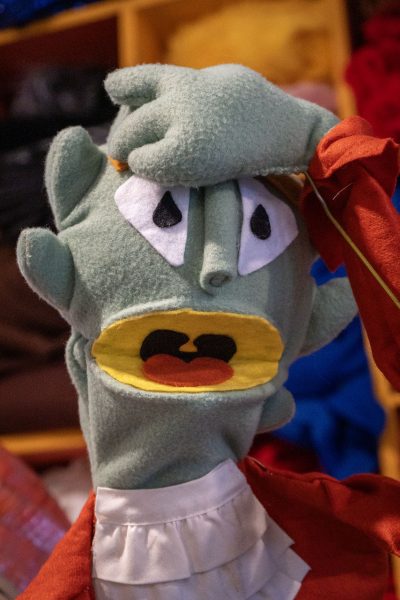
Gershon said the company performs several different types of puppet theater shows. Presentation styles are limitless, from a variety show called “Puppet Slam Jamboree,” where poetry is told through puppetry, to “Puppet Runway,” which mixes puppetry and fashion together into a mini runway-style event. They even have a Puppet Parade that started out as a safe way for the company to continue doing puppet theater during the pandemic. The company hosts the showcase at the Ithaca Parade every May.
Despite puppetry’s strong ties to child entertainment, Ocone said he and Gershon want people of all ages to enjoy the shows they put on. This includes keeping both the parents and kids engaged in the show in different ways.
“There’s certain types of entertainment for children that kids like, and it’s kind of awful to watch as an adult,” Ocone said. “The classic example from when I was a kid was Barney. Adults universally hated it and children loved it, and we try not to do that. We try to take ideas that we think are interesting to us and present them in a way where they’re going to appeal to a wide age range.”
One of the ways Gershon and Ocone try to keep the adults in the audience engaged is a scene in which the puppet gets freaked out when it sees that it is being controlled by a human. Breaking free from illusion as a puppet presents a unique concept that keeps adults invested in their art.
Puppetry’s long global history speaks to the idea that the art form is open-ended, if the artist is passionate enough. Gershon said that if you have the love for it, anyone can do puppet theater. She said that neither she nor Ocone had any degree or background in theater, but were able to create a successful company in the Lilypad Puppet Theatre.
“If you are someone who is an artist or you want to do something creative, puppetry is a wonderful jumping board,” Gershon said. “It’s so accessible and its community is so welcoming. It’s just very open to all kinds of people with different skill levels and different interests to get into it.”
Ocone said he and Gershon’s skill levels weren’t a factor in diving into their newfound passion. He said his background as a musician and Gershon’s background as an English teacher did nothing but influence their craft, drawing ideas from different disciplines into their shows.
“I think that’s one of the beautiful things about it,” Ocone said. “We just started making puppet shows and in the process of doing it, and performing, we learned about it. We slowly learned more about the world of theater, until now we feel [like] we belong here.”


